Safety in Solidarity
Have you ever noticed how the media tends to highlight stories featuring Black and AAPI (Asian American Pacific Islander) folks pitted against each other? Too often, the stories that make headlines focus on violence, fueling a wedge between communities that, in reality, share long histories of solidarity and survival.
At NP, we’ve worked to counter these narratives in New York City. One way we’ve done this has been through having Black/African-identifying staff lead trainings with AAPI partners.
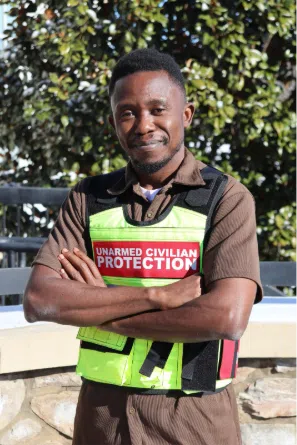

Meet Melvin and Qaaree
Melvin Sharty, Program Manager, identifies as a Black and West African immigrant. Having grown up amid conflict and as a trained peacebuilder, Melvin approaches our work with a simple lens: communities keep each other safe.
Qaaree McDaniel, Program Specialist, is of Indo/Afro, Guyanese, and African American heritage and identifies as LGBTQ+. A seasoned community safety lead and trained EMT/street medic, Qaaree brings protest-safety experience especially with communities carrying layers of identities.
Both staff members play key roles in building our relationship with community partners. These relationships are grounded in the strengths and needs of individuals and a consent-first approach that opens doors and deepens trust.
On the ground across New York City, Melvin and Qaaree have facilitated and led dozens of safety trainings with AAPI partners. They’ve taught situational awareness, upstander intervention, and protective presence; offered accompaniment for elders and survivors; and supported volunteer safety teams from Queens to Manhattan to Brooklyn with wrap-around support for survivors of anti-Asian assaults.
Melvin often says that “relationships are the grease that keeps solidarity moving. Without relationship, there’s no bridge between Black and AAPI communities.” By following this ethic of collective care—echoing Asian American activist Grace Lee Boggs’s reminder that “the only way to survive is by taking care of one another”—they push back against anti-Black and anti-Asian narratives with lived practice. Instead, they lean into the rich histories of survival and solidarity between AAPI and Black communities.
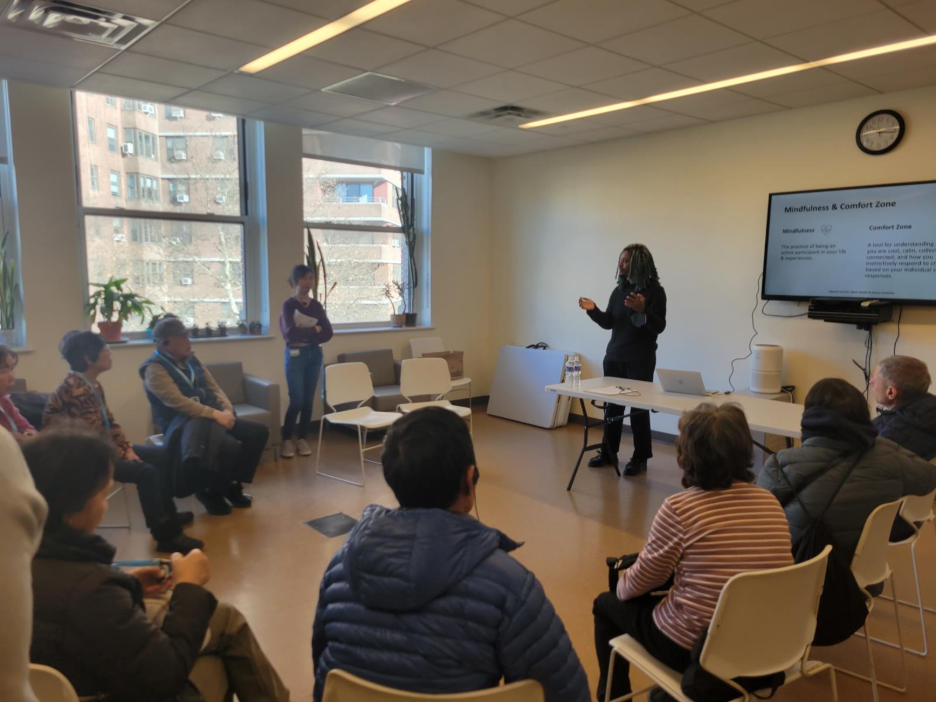
Solidarity in Action
Solidarity is ingrained in NP’s Unarmed Civilian Protection (UCP). It shows up when we provide protective accompaniment to survivors like Vilma Kari, who needed trusted community members to walk with her to court and face the man who attacked her. It shows up when we create space for Southeast Asian Muslim women to learn de-escalation skills they can use on the subway, at school pick-up, and in their buildings. In this framing, safety isn’t delivered from the outside; it is built, shared, and sustained within communities.
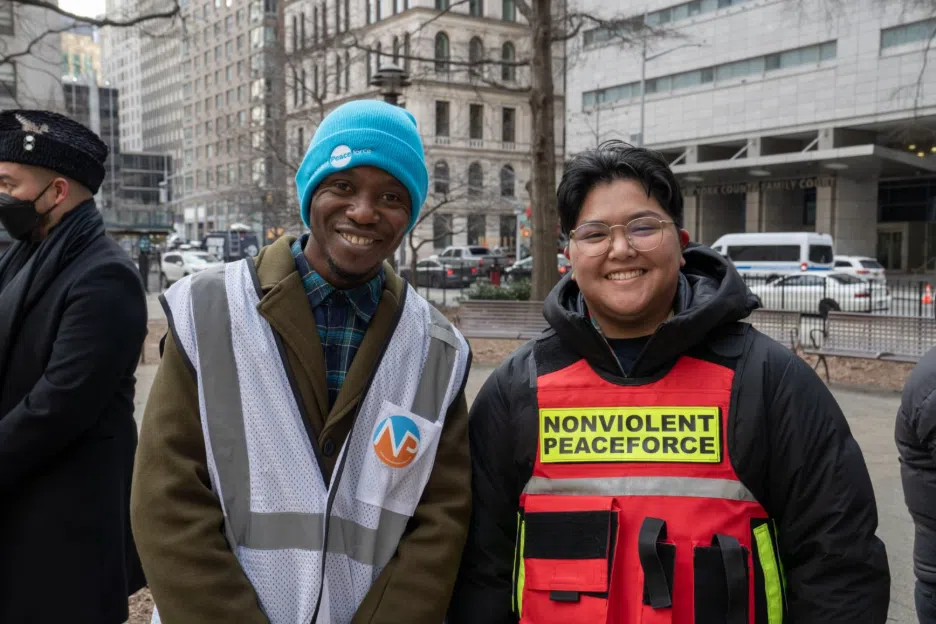
During a recent virtual training, one participant named the fear of being undocumented in NYC. Instead of proceeding with the training as planned, the team paused and mapped out safer routes. Training participants even came up with a one-line ask that other folks can utilize with a loved one in this situation: “Can you stand with me until my train comes?” Small steps like these show how communities can implement UCP every day.
There’s a societal misconception that hate crimes against Asians are perpetrated by Black people, which is not based in facts. In 2021, a University of Michigan study revealed that white males are the leading perpetrators in anti-Asian hate incidents. Qaaree finds it helpful to address these misconceptions when facilitating trainings.
Even if we experience safety differently, everyone needs it regardless of skin color, in the same way that we need food or fresh air. Safety is a universal need.
Following the principle that, “our safety is connected to each other’s safety,” Melvin and Qaaree have become trusted allies to groups ranging from Korean American Family Services to Think!Chinatown’s night market volunteers.
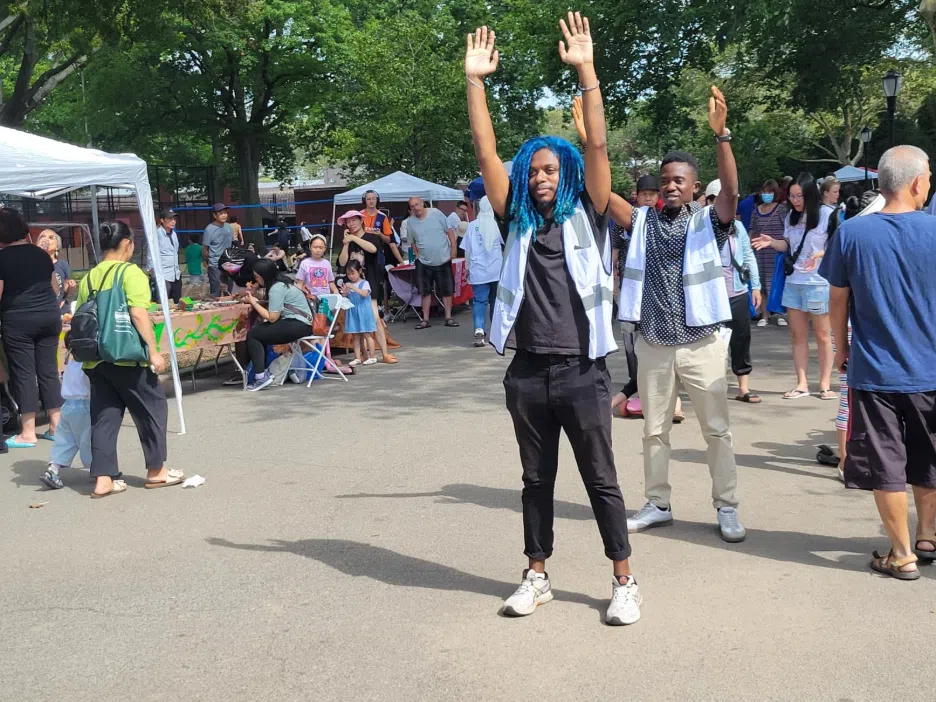
Evolving with Community Partners
Partnerships have grown steadily. NP’s successful past work with Think!Chinatown, including the training of volunteers in de-escalation, has led to other organizations reaching out for support. Baxter Street Camera Club, a Chinatown-based arts nonprofit that curates experiences for Asian American artists, reached out when arts spaces were being infiltrated and staff felt unsafe. Following one of Qaaree and Melvin’s trainings, Community Outreach Coordinator Shradha Kochhar, shared:
“The training was incredibly impactful for learning how to keep our gallery community safe. You taught techniques we can use here and outside of work, with real-world examples that showed how to deploy them right away. I’ve already started using situational awareness—like watching people’s torsos when I feel threatened. Your team’s kindness and openness made it both educational and enjoyable. At a time when we’re reflecting on disproportionate police violence, we’re grateful for alternatives that provide actual community safety. I deeply appreciate your ethos and your work with us.”
Looking Ahead
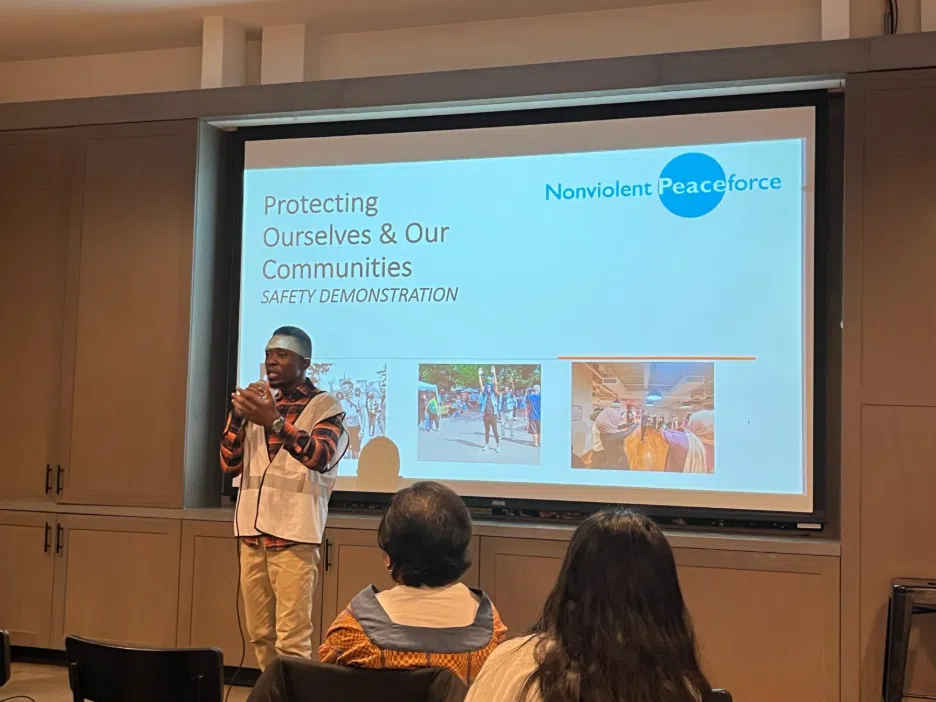
What does this work look like going forward? Over the last few years, AAPI orgs have become stronger partners with NP. Melvin is optimistic about the future for the team’s programming. He says, “The more we support the community, the more people recognize the work.”
Our full NYC team is diverse, and includes Asian, African American, Black African, LGBTQ+ staff. Showing up as allies across differences has improved trust. The safety we offer is unique, as it brings Black and Asian communities together in a way that disrupts anti-Blackness and anti-Asian bias.
However, the work can be overwhelming; empathetic stress and emotional fatigue are real, and there is a need to expand the team. Violence keeps increasing, and each new administration brings renewed attacks on immigrant communities, including AAPI communities. People struggle to access the resources that empower them. We often don’t have the capacity to respond to every need. The solution is more funding and more allies to support this critical work.
Whatever comes next, one thing is for sure, our team will continue building peace alongside communities.
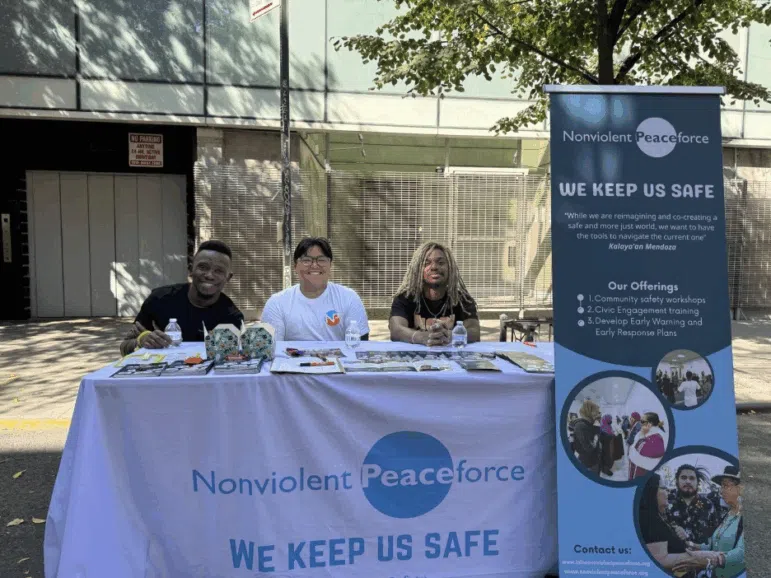
* * *
NP has worked with 32 community organizations in the Hope Against Hate program over the past four years which is funded by the Asian American Federation (AAF). Since January 2020, New York City has recorded more than 2,627 anti-Asian hate incidents, with elders disproportionately targeted. In response, our partnership with AAF has reached hundreds of New Yorkers with practical tools for de-escalation and situational awareness.
